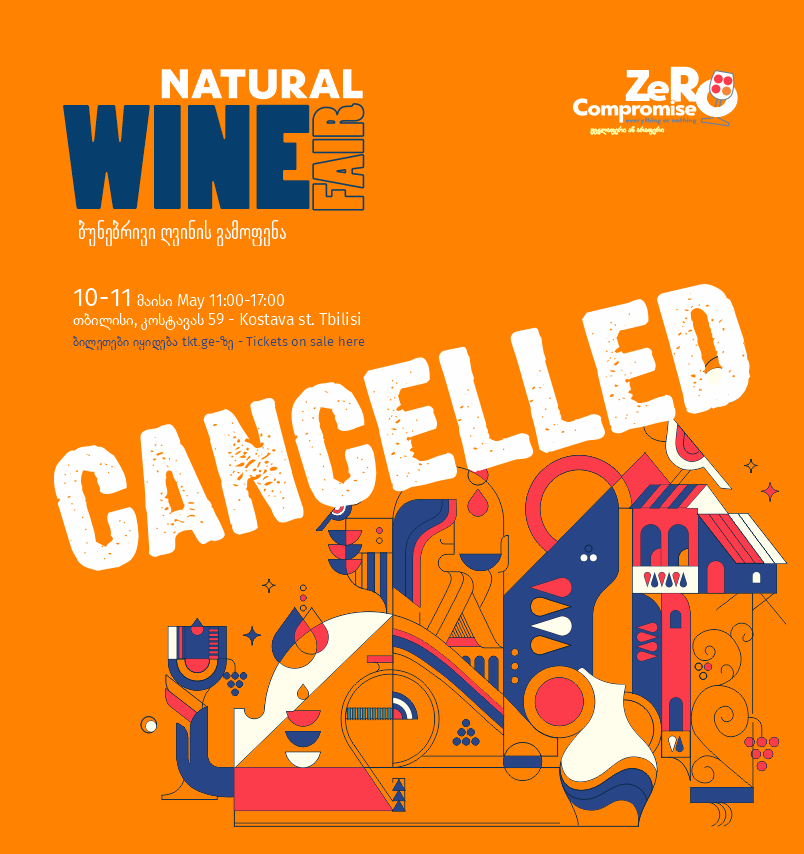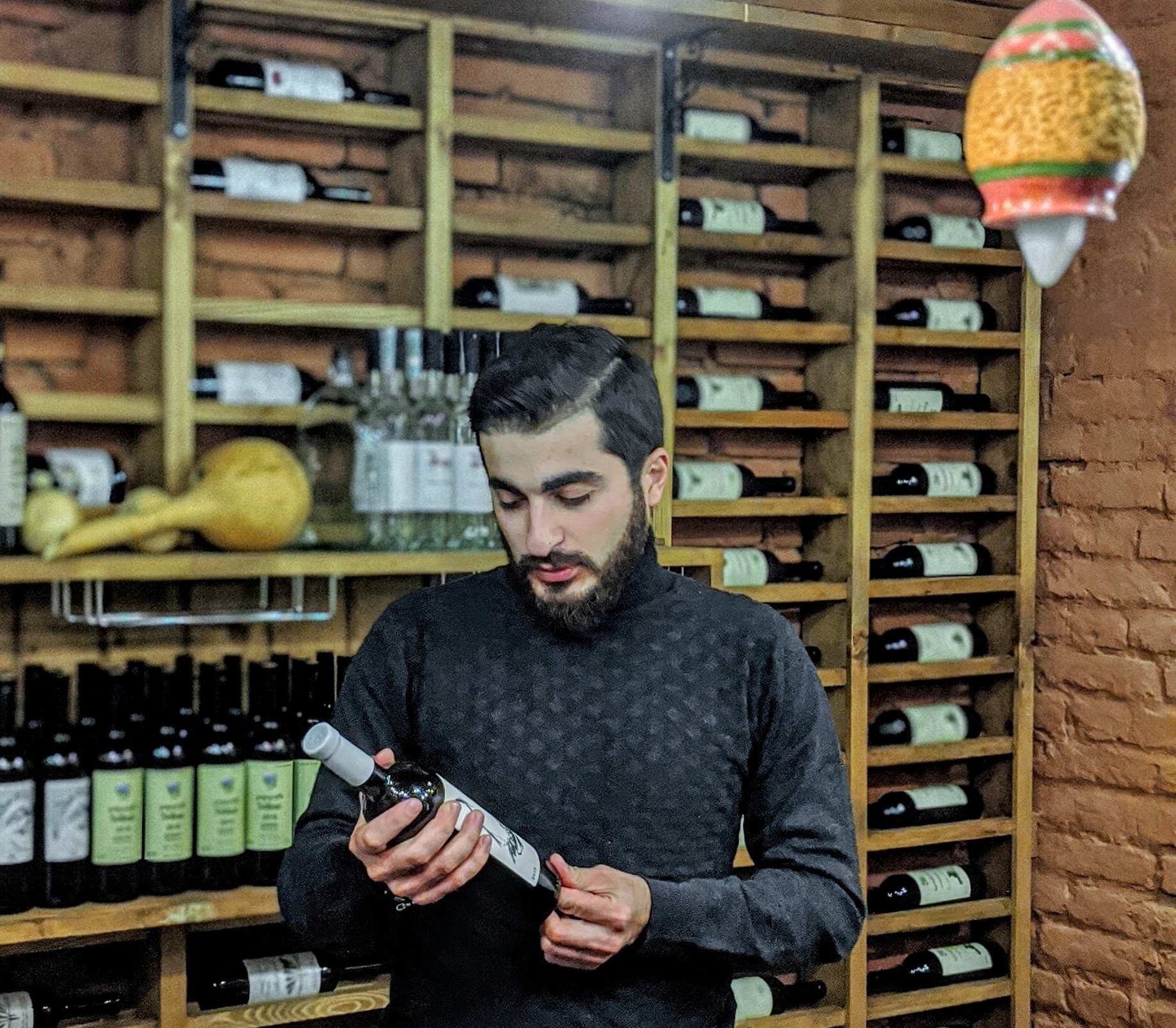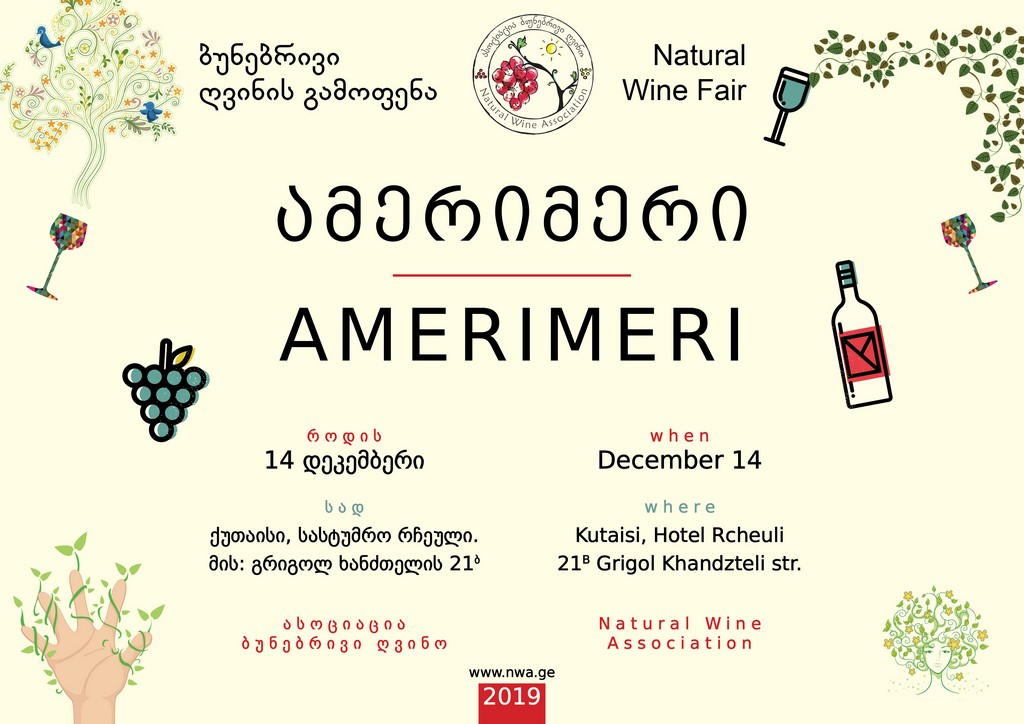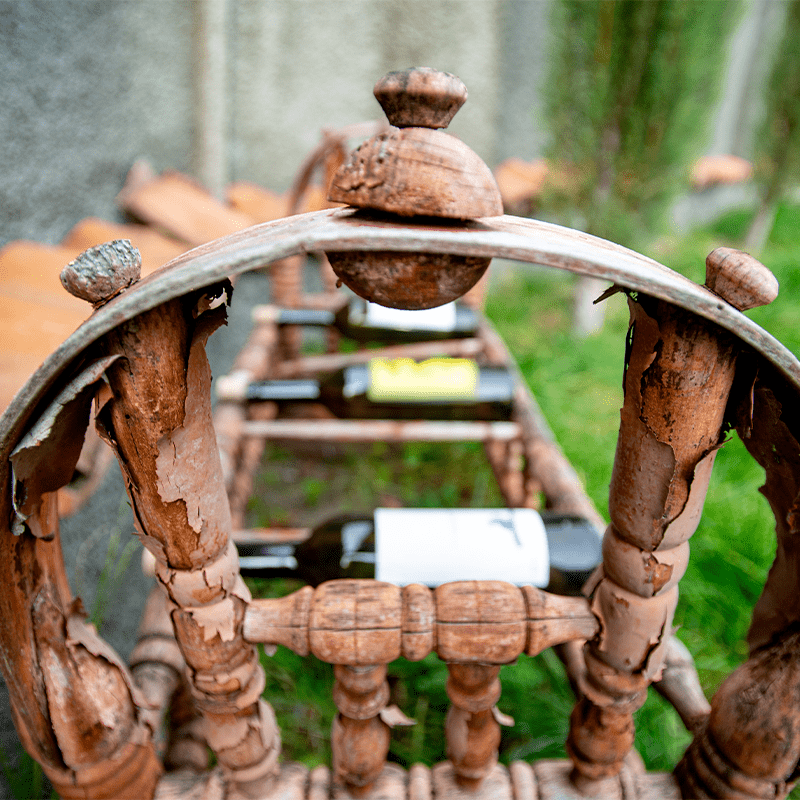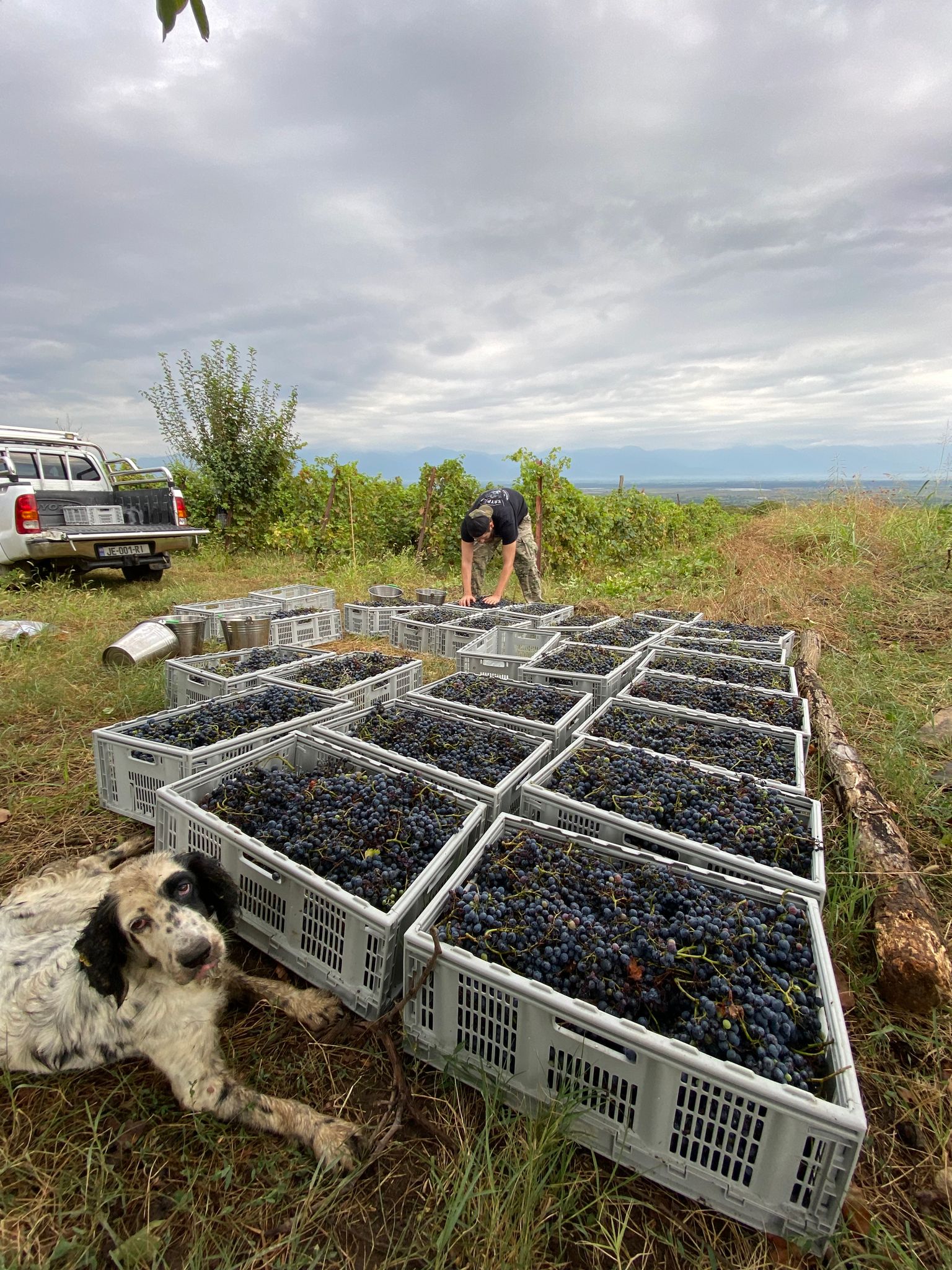News . 14-03-2022
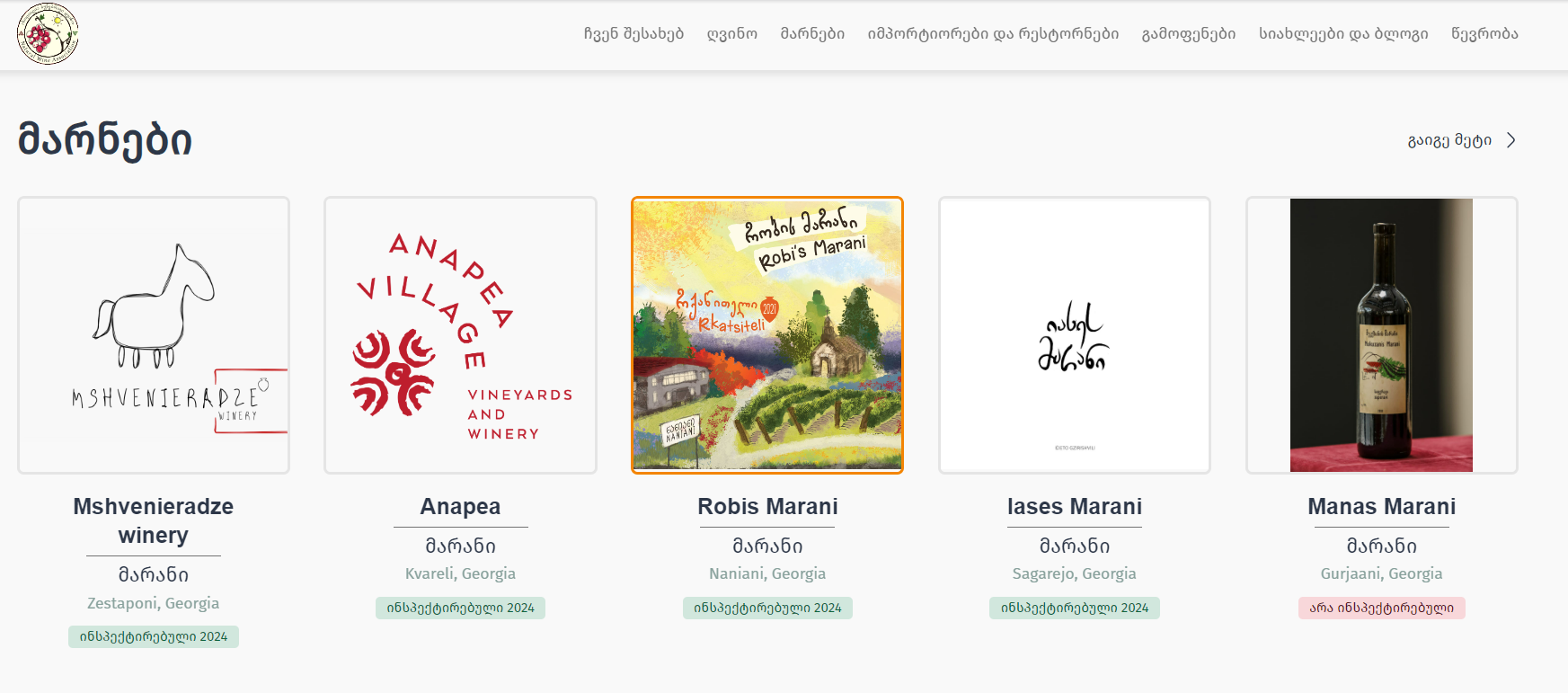
Association Mark for Natural Wines and Annual Inspection
A new feature has been added to the Natural Wine Association website, NWA.GE. Now, inscriptions for ‘inspected’ and ‘uninspected’ appear on the profiles of Maranis that are members of the Association. This feature allows the Association to inform the public about which Maranis in 2024 have expressed their desire to undergo the Association’s inspection process. In the future, these Maranis may receive the Association’s mark on the wines from the 2024 harvest. On NWA.GE, it will be possible to view wines with the Association mark.
Since 2018, the Natural Wine Association has been conducting annual inspections of its member Maranis. The inspection process involves visits by the Association’s inspectors to the vineyards and Maranis of its members. Additionally, inspectors thoroughly review documentation related to vineyard maintenance and winemaking processes.
During vineyard visits, inspectors investigate whether members adhere to the rules and standards established by the Association for vineyard maintenance. They assess the use of contact and bio fungicides in treating fungal diseases and pests, monitor copper application to ensure it stays within prescribed limits, and verify the use of organic fertilizers to strengthen vines while avoiding excessive doses. Herbicides, strictly prohibited in organic viticulture, are scrutinized for compliance. Soil fertility and biodiversity preservation methods are also evaluated.
In addition to on-site inspections, inspectors review members’ records documenting vineyard maintenance throughout the year. These records provide a chronological overview of vineyard work and details about the treatments and methods employed. Members must present invoices for purchased treatments, warehouse balances, and other evidence to inform the Association about their vineyard practices.
During Marani visits, inspectors examine the raw materials processed by members each year and assess how they make their wines. The focus is on adherence to natural winemaking standards, which require using only traditional, natural methods in both fermentation and wine production and storage. The Association strictly prohibits any chemical substances, selective yeasts, enzymes, taste-regulating wine acids, mash, and other industrial additives in wine. Additionally, the use of sugar to falsify wine is strictly forbidden, aligning with Georgian legislation.
The Natural Wine Association strictly prohibits parallel production in both viticulture and winemaking. This means that Association members, in addition to their organic vineyards, should not maintain conventional vineyards. Furthermore, they must refrain from producing wines processed using industrial methods alongside their natural wines. The Association ensures compliance with its stringent standard during inspections.
Until 2023, the Association conducted mandatory inspection visits to all member vineyards and Maranis. However, starting in 2023, inspections are now carried out only for members who request the Association mark for their wines. The Natural Wine mark serves as official confirmation that a product is a natural wine. In recent years, this Association mark has gained more recognition and desirability than the wines themselves. Wines from member Maranis are already featured in natural wine bar-restaurants across Georgia and in various countries worldwide. Wine exporters increasingly prioritize the presence of this mark on their products. Soon, the Association’s website will indicate whether a specific wine from member Maranis bears the Association mark or not.
The Association mark is assigned to a specific lot of wine bottled by a member of the Association. This wine has passed certification for the national or international market and is prepared for import or export to sales facilities. When issuing the mark, the Association considers the results of inspection visits and also pays attention to the data from the laboratory test report. The mark is granted only to wines in which the total sulfur content does not exceed 50 milligrams per liter.
Starting in 2023, the Natural Wine Association supplements its inspection visits by randomly selecting and sending wine samples from ten Association members to a In leading European laboratories testing. The laboratory analyzes these samples to detect any traces of systemic fungicides. These fungicides can permeate not only the fruit of the vine but also the entire plant (hence their name—systemic). Due to their prolonged effectiveness, they may find their way into the final product: the wine.
The purpose of this internal control mechanism within the Association is twofold: first, to enhance the reliability and recognition of natural wine in the market—both for local and foreign consumers. Second, by providing more information about natural wines and their producers, consumers can make informed choices when purchasing wine.
